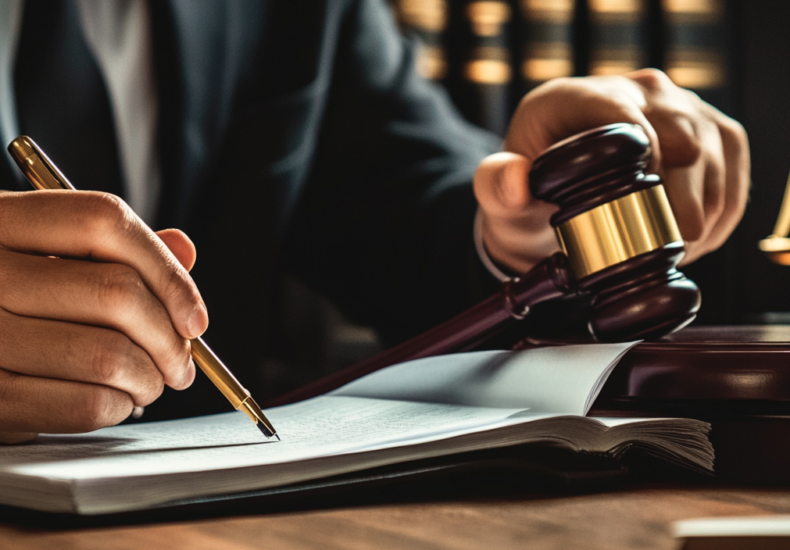
Looking Personal Injury Lawyer
Looking Personal Injury Lawyer
Choosing the right personal injury lawyer can significantly impact the outcome of your case. With numerous options available, it can be challenging to determine which lawyer will best represent your interests. This article provides a comprehensive guide on what to look for when selecting a personal injury lawyer.
Experience and Specialization
One of the most important factors to consider is the lawyer’s experience and specialization in personal injury law. A lawyer with extensive experience in handling personal injury cases will be more familiar with the legal processes and strategies that can lead to a successful outcome.
- Years of practice in personal injury law
- Number of cases handled
- Types of personal injury cases managed
For instance, a lawyer who has handled numerous car accident cases may be more adept at navigating the complexities of such claims compared to a general practitioner.
Track Record of Success
Another critical aspect is the lawyer’s track record of success. This includes the number of cases won and the amount of compensation secured for clients. A strong track record indicates the lawyer’s ability to effectively advocate for their clients.
- Success rate in personal injury cases
- Significant settlements or verdicts achieved
- Client testimonials and reviews
For example, a lawyer who has consistently secured high settlements for their clients demonstrates their proficiency in negotiating with insurance companies and presenting compelling arguments in court.
Reputation and Professionalism
The lawyer’s reputation within the legal community and among clients is another important consideration. A well-respected lawyer is more likely to be taken seriously by opposing counsel and judges, which can be advantageous for your case.
- Peer reviews and ratings
- Membership in professional organizations
- Awards and recognitions
For instance, a lawyer who is a member of the American Association for Justice or has received accolades from legal publications is likely to be highly regarded in their field.
Communication Skills
Effective communication is key to a successful attorney-client relationship. A good personal injury lawyer should be able to clearly explain legal concepts, keep you informed about the progress of your case, and be responsive to your questions and concerns.
- Clarity in explaining legal terms and processes
- Regular updates on case status
- Prompt responses to inquiries
For example, a lawyer who takes the time to explain the implications of a settlement offer and provides regular updates on your case status can help you make informed decisions.
Fee Structure
Understanding the lawyer’s fee structure is crucial to avoid any unexpected costs. Most personal injury lawyers work on a contingency fee basis, meaning they only get paid if you win your case. However, it’s important to clarify the percentage they will take and any additional costs you may be responsible for.
- Contingency fee percentage
- Additional costs (e.g., court fees, expert witness fees)
- Payment schedule and terms
For instance, a lawyer who charges a 30% contingency fee and provides a clear breakdown of additional costs can help you budget for your case more effectively.
Personal Connection
Feeling comfortable with your lawyer is essential for a positive working relationship. A lawyer who listens to your concerns, shows empathy, and demonstrates a genuine interest in your case can make the legal process less stressful.
- Empathy and understanding
- Willingness to listen and address concerns
- Genuine interest in your case
For example, a lawyer who takes the time to understand the impact of your injury on your life and shows compassion can provide more personalized and effective representation.
Case Studies and Examples
Examining case studies and examples of past cases can provide valuable insights into a lawyer’s capabilities. Look for examples of cases similar to yours and how the lawyer handled them.
- Case outcomes and settlements
- Strategies used in similar cases
- Client experiences and testimonials
For instance, a lawyer who successfully represented a client with a similar injury and secured a substantial settlement can give you confidence in their ability to handle your case.
Availability and Accessibility
The lawyer’s availability and accessibility are important factors to consider. A lawyer who is readily available to meet with you, answer your questions, and provide updates on your case can help alleviate stress and ensure that your case progresses smoothly.
- Availability for meetings and consultations
- Accessibility via phone, email, or in-person
- Support staff and resources
For example, a lawyer who offers flexible meeting times and is easily reachable by phone or email can provide the support you need throughout the legal process.
Conclusion
Choosing the right personal injury lawyer involves evaluating several factors, including experience, track record, reputation, communication skills, fee structure, personal connection, case studies, and availability. By carefully considering these aspects, you can find a lawyer who will effectively represent your interests and help you achieve a favorable outcome in your case.
Recent Posts
- Crafting Your Perfect Cup: Tips for Developing Mushroom Coffee at Home
- Navigating Lear Capital: A Review of Solutions and Customer Fulfillment
- CBD Oil for Pet Dogs: A Safe and Efficient Alternate to Standard Medications
- CBD Oil for Animals: A Comprehensive Overview to Improving Your Pet dog’s Lifestyle
- Exploring the Entourage Effect in Delta nine THC Gummies and Cannabis Edibles